Violations of environmental law, even seemingly minor violations, can have major impacts on a business. Violations cannot only tarnish the public image of a company, but an enforcement action can also subject the business to significant legal liability. Violations involving releases may result in agency demands for investigation and remediation both on site and off site. If a company is later the subject of an acquisition, past environmental violations must be disclosed to the acquiring entity.
Federal and state environmental agencies may seek to impose administrative or civil penalties for noncompliance. The Minnesota Pollution Control Agency (MPCA) has the authority to seek civil penalties of up to $10,000 per day per violation. If a case involves hazardous waste violations, penalties may be up to $25,000 per day per violation. The MPCA may seek a negotiated settlement through a Stipulation Agreement or seek court-ordered penalties. The MPCA may unilaterally issue an Administrative Penalty Order (APO) where it may assess a penalty of up to $20,000 for violations and order the regulated party to take corrective actions.
In many instances businesses may not pay close attention to compliance requirements. Given the complexity of environmental laws and regulations, despite their best efforts companies may fall short of full compliance. As noted above, minor violations, when missed, can quickly become more substantial and expose businesses to negative publicity, liability, and drawn-out legal actions. The MPCA’s Environmental Audit Program (Audit Program) may be a good solution for a business that is unsure if it has, or suspects that it may have, environmental violations.
The MPCA’s Audit Program allows a business to discover and correct violations before those violations become substantial and extremely costly. To participate in the Audit Program, a business must conduct an environmental audit or hire an outside firm to conduct the audit. Forty-five days after conducting the audit the business must submit a report to the MPCA summarizing the results. After the report is submitted, the business has 90 days to correct the identified issues or submit a performance schedule to the MPCA.
Generally, if a minor violation is disclosed under the Audit Program and corrected within 90 days, there will be no penalty for the violation. Taking part in Audit Program has two major benefits for businesses. First, concerns can be identified promptly and will likely not turn into a major environmental issue with all of the attached costs. Second, the business will in most cases be able to avoid paying any penalty for the minor violation. However, there are potential risks for participating in Audit Program. If the MPCA determines that the violation provided the business with “a substantial economic benefit, which gives the violator a clear advantage over its competitors,” an enforcement action can be started based on the violations disclosed in the audit.
Confidentiality is a major concern for most businesses when deciding whether to disclose a violation to a government agency. However, with the Audit Program, confidentiality, while still a concern, is less of a concern than with other disclosures to government agencies. First and foremost, the MPCA is generally not entitled to a copy of the audit unless there is probable cause that a crime occurred. Second, additional confidentiality protections can be put into place in advance of the audit using attorney-client privilege to protect disclosure of confidential elements of an audit report.
Finally, if a business decides to participate in the Audit Program, successfully completes an audit, and conducts any required cleanup, it can be awarded the Minnesota Green Star certificate. The business can then display this emblem for two years, which indicates to the public and potential customers the business’s commitment to the environment.
The U.S. Environmental Protection Agency (EPA) has similar audit programs where companies without a history of violations may be eligible for audit protection provided they meet certain criteria. Given the eligibility criteria and the potential for disclosure of violations, it is prudent to consult with an attorney before undertaking an audit.
At Hessian & McKasy, our environmental lawyers assist clients on a range of environmental issues including permitting and enforcement matters. We have worked with many clients to develop environmental management programs to audit compliance. Members of the Hessian & McKasy Environmental Law Practice Group, including Practice Chair Joseph Maternowski, are involved with the defense of enforcement of all other environmental regulations.
Please see the disclaimer at the bottom of this page for limitations on this blog.
For additional information please contact:
Joseph G. Maternowski
Hessian & McKasy, PA
Work: 612-746-5754
jmaternowski@hessianmckasy.com
Please Note Disclaimer Found at Top Right of Our Website, Thank you
